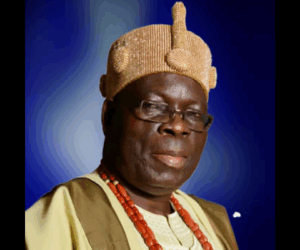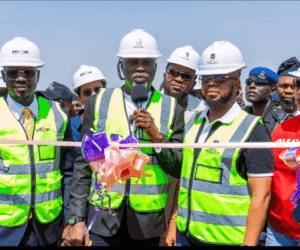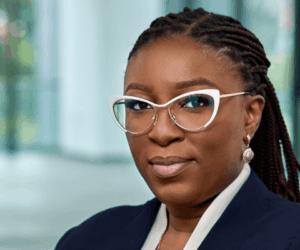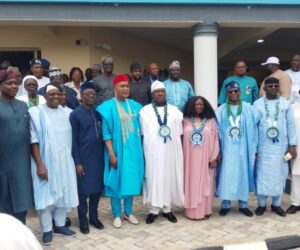Nigeria, despite being Africa’s most populous nation and one of its largest democracies, continues to grapple with alarmingly high illiteracy rates, with approximately 31 percent of its population unable to read or write.
This widespread lack of basic education presents a serious obstacle to effective civic engagement, limiting millions of Nigerians from fully participating in democratic processes, understanding government policies, or holding public officials accountable.
As the country pushes for deeper democratic reforms and inclusive governance, many stakeholders wonder how true civic participation would thrive when nearly a third of the population is excluded by illiteracy.
Friday Erhabor, director of media and strategies at Marklenez Limited said there is a need for Nigeria to make education accessible to all citizens.
However, Erhabor emphasised that Nigeria’s low participation in civic activities goes beyond literacy.
“Low civic participation in Nigeria goes beyond illiteracy. The civic participation among educated people is also low.
“This can be as a result of their frustration over bad governance over the years; this has naturally alienated citizens,” he said.
To reverse this trend, he said, there must be reorientation both on the part of leaders and the people. The leaders should provide good governance while the people should be more practical in demanding good leadership.
“The civil society group should intensify their alliance with the people to demand for good leadership,” he noted.
Gift Osikoya, a teacher, said that if 31 percent of Nigerians are illiterate, it means almost one-third of the population struggles with basic reading and writing.
“Illiteracy doesn’t just affect personal growth; it also affects how much people can understand their rights, responsibilities, and the workings of government.
“When citizens can’t easily read electoral materials, understand laws, or follow debates, their civic participation is limited,” she said.
Osikoya emphasised that access to education boosts civic participation through awareness of one’s rights and duties.
“Education helps people know they have the right to vote, demand accountability, and contribute to governance. Literate citizens are more likely to analyse political promises, policies, and manifestos before supporting leaders.
“Education gives people the confidence to engage in debates, attend community meetings, or even contest elections. Besides, it reduces manipulation because educated citizens are less vulnerable to misinformation, vote-buying, or being used as political tools,” she said.
Osikoya emphasised that the way for Nigeria to come out of this quagmire is for the government to strengthen basic education.
“Ensure every child must have access to free, quality primary and secondary schooling, especially in rural areas. Create flexible, community-based learning centers so adults who missed formal schooling can still learn to read, write, and understand civic issues.
“Beyond literacy, schools should emphasise civic responsibility, democracy, and the importance of participation in nation-building,” she noted.
Moreover, she pointed out the need for the use of local languages in schools, because many citizens speak indigenous languages fluently, government campaigns, electoral materials, and awareness programmes should be provided in these languages, according to the educator.
With about 62 million Nigerians, which is up to a third of the population being illiterate, it becomes harder for the country to make informed decisions, and its democratic processes are less effective.
According to a report by “HOLE” — Huge Outlay Lacking in Education, it is obviously a ticking time bomb that may sound good from a politician’s short-term perspective, where they can easily sway a less educated electorate, but ultimately, it becomes self-defeating.
Poor governance, political manipulation, and social unrest are consequences of an uneducated population, destabilising the future of the country.
This significant illiterate population in Nigeria limits critical thinking, which is essential for meaningful civic participation.
Without strong literacy skills, people struggle to analyse complex issues, evaluate the credibility of sources, and make in-formed decisions during elections.
This can result in low voter turnout, particularly among marginalised groups, and undermine the democratic process.
Studies show a correlation between lower literacy levels and decreased voter turnout, political engagement, and trust in the political system.
Illiteracy can create barriers to understanding political processes, accessing information, and feeling confident in participating.
According to Countrymeters, an online real-time statistics provider, Kenya has an estimated 77.99 percent literate adult population, aged 15 years and above, invariably, 22.01 percent Kenyans are illiterate.
Many Kenyans are actively involved in civic activities, including elections and politics, although participation varies across different groups and contexts.
It could be argued that the Nigerian government is clamping down on education as an avenue to buy votes during elections, bearing in mind that literate citizens would question their policies.
How do you reconcile the fact that children were kept out of school for over three months in the FCT, and the president said nothing, or the fact that students wrote exams with candle light in the thick of the night for errors orchestrated by the exam umpires; and the government said nothing?
This simply points to the fact that education does not count in Nigeria, after-all, an illiterate can be a president in Nigeria.









